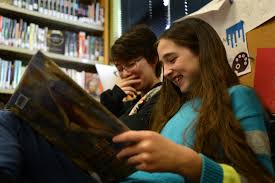My daughter-in-law is a new mother to my newest grandson. dylan is four months old and of course she is absolutely gorgeous in the 59 shades of pink she wears. about a month ago, her mom started reading to dylan. both enjoy the experience immensely. dylan is entranced by the sound of mom’s voice. And Mom is amazed that board books and picture books can carry so much truth and bring it right to her own heart.
You are reading: Themes for childrens books
That’s why I write books for young children. when done right they are powerful.
Author Nancy Lamb explains one reason for this power in her masterful book A Writer’s Guide to Creating Children’s Stories. page 19.
“Although the early books are generally simple, there are several qualities that elevate the best of them to the category of classics, including the fact that the most notable books deal with universal themes. loss, fear, love, anxiety, anger, loneliness, joy, curiosity, greed, humor. all the things that make us laugh and cry, the things that mark us as human. the more of these attributes you use in a book, the more effective that book will be.”
topic can be expressed as one or two words that tell you what your book is about. what should your reader take away from your book, put succinctly?
Another way to think about it is: what does your main character learn or change in the process of the story? in a word or two. that’s the thing.
The most memorable books for children (and for you) revolve around one or more universal themes. that is, topics that are common to most readers of your target audience.
See Also: Winston Churchill&039s Beach Reading: His Top Ten Books – Yale University Press
try these 31 themes to see the size
- family
- school
- parents
- grandparents
- siblings
- friendship
- vacation
- imagination
- honesty
- faith
- generosity
- prejudice
- growth
- compassion
- equality
- death
- justice
- persistence
- loneliness
- courage/bravery
- cooperation
- self-control
- kindness
- hope
- determination
- acceptance
- hard work
- peace
- differences
- loyalty
- take a position
of course, there are more than 31 universal themes. this list is just to make you think
now think about your own manuscripts: stories, nonfiction (yes, nonfiction can be more than animals or electricity!), novels, picture books, high school books, chapter books. don’t be in a big hurry. think about your story and your characters. what is going on with them? How do they change? One or two of these 31 words appear in the center of your brain?
does that or two words (maybe you can use three) tell me what your story is really about under the surface? a theme has to be there, swimming below the surface of your story, if you hope to have an impact on your readers.
and if you expect to see your book on the shelves for a long time.
As a second exercise, list some of your favorite children’s books. now, as pooh says, “she thinks. to think. think.”
Are your favorite books possibly about any of the words listed above? when you remember your favourites, do you automatically start thinking of something from our list of 31?
You shouldn’t need (or want) to tell your reader what the topic is anywhere in your story. that doesn’t work no. children will put down that book and look for another. in large, enduring books, most readers can figure out for themselves what the story is about; what the main character discovered while experiencing the events of that story. why? because you have skillfully told your story and allowed the truth of your subject to rise to the surface on its own.
See Also: The Best Mindfulness Books of 2020 – Mindful
yes, doggies! Don’t we want our young readers to experience our stories and learn something from them together with our main characters?
Don’t we want our readers to live that story with the protagonist? if your book does that, then readers are going to search your pages again and again. and that book will be yet another tool to mold them into the people they are becoming.
and that’s why we write our stories in the first place. isn’t it?
As a pre-teen, Jean Hall dreamed of being an architect or interior decorator. As a high school student, he dreamed of being anything but a teacher. when he was a college student, he dreamed of being a vocalist. as a woman “over fifty” she dreamed of writing children’s stories. But as life went on, it seemed like none of those dreams would come true.
but,
jean spent twenty-six years teaching kids and teens, and loving it! then twenty more years teaching women’s Bible studies. she never designed a house, but she lived and decorated with very little money more than a dozen houses. she never performed before thousands, nor did she record any music. but she sang hundreds of times leading the people in praise to the lord. Now, she’s working hard and trusting God to guide her down the path of traditional publishing.
Sometimes our dreams come true in ways we couldn’t imagine.
jean’s daily prayer is that the christ within her shines through the cracks and broken places of her dreams and that christ shines through the things she writes to uplift, uplift and inspire others.
See Also: 6 Dr. Seuss books won’t be published anymore because they portray people in ‘hurtful and wrong’ ways
>

